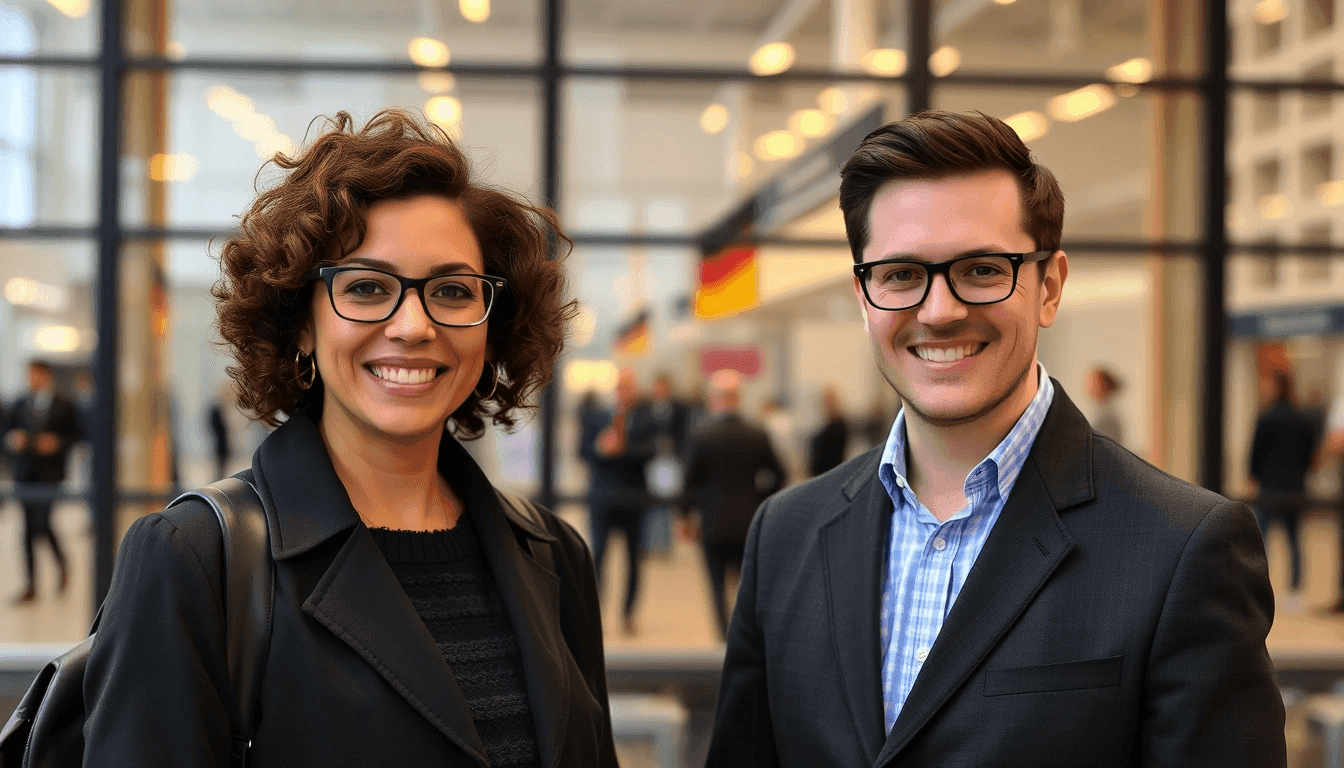

Germany is doubling down on its strategic efforts to attract global talent, proactively promoting its job-seeker visa program for graduates and experts. This isn't merely about opening borders; it's a sophisticated, multi-pronged approach designed to seamlessly integrate skilled professionals into the German labor market, backed by robust matching services and essential language training. At its core, the initiative underscores a pragmatic response to Germany's persistent Fachkräftemangel – the critical shortage of skilled workers across key industries.
The updated strategy, building upon the foundational Fachkräfteeinwanderungsgesetz (Skilled Immigration Act) which came into full effect in 2020 and saw further updates this year, aims to streamline the process for non-EU citizens seeking employment. Unlike a traditional work visa, the job-seeker visa (often valid for up to six months) grants individuals the opportunity to physically be in Germany to search for a job, attend interviews, and network. The focus remains squarely on highly qualified individuals – those with university degrees or equivalent vocational qualifications recognized in Germany.
Crucially, the German government and its partners are enhancing the support infrastructure around this visa. Gone are the days when applicants were largely left to their own devices. New efforts are concentrating on developing stronger labour-market matching services. Entities like the Bundesagentur für Arbeit (Federal Employment Agency) are increasingly playing a proactive role, not just in processing applications but in connecting qualified candidates with specific industry needs. This involves dedicated online portals, targeted job fairs, and even personalized counseling to bridge the gap between international talent and German employers struggling to fill vacancies in sectors ranging from IT and engineering to healthcare and skilled trades. The goal is to reduce the time spent searching and accelerate productive employment.
What's more, the emphasis on successful integration language courses is paramount. Germany understands that professional success and social well-being are inextricably linked to language proficiency. Therefore, access to high-quality, often subsidized, German language courses is a cornerstone of this initiative. Institutions like the Goethe-Institut and various Volkshochschulen (adult education centers) offer structured programs, ensuring newcomers can quickly gain the linguistic competence required for daily life and the workplace. This investment in language isn't just a courtesy; it's a strategic move to foster long-term retention of talent and ensure a smoother transition into German society.
However, for all the streamlined processes and enhanced support, a non-negotiable requirement remains: job seekers must present degree equivalence. This isn't merely bureaucratic red tape; it's a quality assurance measure designed to maintain the high standards of the German labor market and ensure fair competition. Prospective applicants are expected to have their foreign qualifications recognized as equivalent to a German degree or vocational qualification. The Anabin database, managed by the Central Office for Foreign Education (ZAB), is the go-to resource for checking the recognition status of foreign degrees. For qualifications not directly listed, a formal evaluation process is often required through the Federal Office for Migration and Refugees (BAMF) or other designated authorities. This step, while sometimes perceived as complex, is vital for both employers and employees to ensure a clear understanding of qualifications and professional standing.
This comprehensive approach reflects Germany's forward-thinking strategy to combat demographic pressures and maintain its economic competitiveness on the global stage. By actively promoting its job-seeker visa, coupled with robust support mechanisms and clear qualification standards, Germany is positioning itself as a highly attractive destination for skilled professionals worldwide. It's a clear signal: Germany isn't just looking for workers; it's investing in their successful integration and long-term contribution to its future. Prospective applicants can find comprehensive guidance on the official Make it in Germany portal, an excellent first stop for navigating the process.

About Harleen Kaur Bawa
Harleen Kaur Bawa is a licensed immigration attorney specializing in Canadian immigration and Indian services. With extensive experience in family sponsorship, Express Entry, refugee claims, and OCI services, she has successfully helped hundreds of clients navigate complex immigration processes.
Harleen holds degrees from York University - Osgoode Hall Law School and the University of Toronto, and is certified by the Law Society of Ontario and the Immigration Consultants of Canada Regulatory Council. She is committed to providing personalized, professional legal services to help clients achieve their immigration goals.
Related Articles

UK Intensifies Student Sponsor Checks: Tougher Sanctions, Student Verification Now Crucial
UK tightens student visa compliance for institutions. Discover stricter audits, penalties & crucial steps for international students to verify sponsors.

Navigating the Global Talent Maze: Translating Diplomas and Enduring Consular Waits for Employer-Led Entry
Master the global talent hunt. Understand employer-led immigration hurdles: diploma validation, lengthy visa waits, and variable processing by region impacting international hires.

Ongoing Consultations with Provinces Shaping National Policy Landscape
Federal-provincial consultations in Canada aim to forge a national strategy for economic recovery, climate, & healthcare. Explore how this will redefine intergovernmental cooperation.